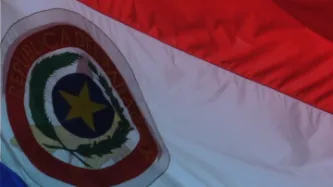Search
Content type: Examples
A report finds that most of the education technology endorsed by 49 governments in the rush to online learning during the covid-19 pandemic puts at risk or directly violates the privacy and rights of children for purposes unrelated to their education. Such platforms track children across the internet, access their contacts lists on social media and phones, and built profiles that can be used for manipulation.
https://www.hrw.org/report/2022/05/25/how-dare-they-peep-my-private-life/childrens-…
Content type: Examples
The pro-Ukrainian hacker group NLB Team leaked the personal data of more than 17 million children and parents who used Moscow Electronic School, an online learning platform that was built by the Moscow city government in 2016 and was its primary method of delivery online education during the covid-19 pandemic. The city government said the leaked data did not pertain to real users; however, a number of users identified their own data. Even before the leak, the platform was reportedly surveilling…
Content type: Examples
Ukraine and Russia are both weaponising facial recognition - but Russia is using it to hunt down anti-war protesters, holding and sometimes torturing anyone who refuses to be photographed, while Ukraine is using software donated by Clearview AI to help find Russian infiltrators at checkpoints, identify the dead and reunite families. Russia's widespread surveillance means that activists can be followed and arrested anywhere. In an approved, peaceful anti-government rally in Moscow in 2019,…
Content type: Examples
Footage captured by Bloomberg shows that police are arresting anti-war protesters in Russia and scrolling through their phones.
https://www.bloomberg.com/news/videos/2022-03-07/russian-police-search-protesters-phones-make-arrests-video
Writer: Kommersant
Publication: Bloomberg TV
Publication date: 2022-03-07
Content type: Examples
Based on a draft methodology from Russia's Emergency Situations Ministry, Kommersant business daily reports that Rostec's data subsidiary, Natsionalny Tsentr Informatizatsii, is developing software that will use machine learning to detect and prevent mass unrest. The software will analyse news reports, social media postings, public transport data, and video surveillance footage; if it fails to prevent mass unrest it is expected to direct the crowd's movements to stop it from escalating. The…
Content type: Examples
The Kommersant reports that Russia's Rostec State Corporation is developing a new AI-powered anti-riot surveillance system that uses biometrics-powered cameras and can search social media networks and other publicly accessible data and intends to deploy the new system by the end of 2022. The behaviou analysis software is being developed as part of the Safe City project under the aegis of the Ministry of Emergency Situations, which intends to spend 97 billion rubles ($1.3 billion) deploying Safe…
Content type: Examples
Russian authorities are using facial recognition to track opposition protesters to their homes and arrest them, though the cameras are often turned off or "malfunctioning" when state security agents are suspected of attacks on or murders of journalists and opposition activists. The data is gathered into a central database and is sold cheaply by corrupt officials on Russia's "probiv" black market in data. Facial recognition software, produced by local companies such as NtechLab, is…
Content type: Advocacy
This report is presented by TEDIC (Technology and Community Association) and Privacy International (PI). TEDIC is a non-governmental, non-profit organization, based in Asunción, that promotes and defends human rights on the Internet and extends its networking to Latin America. PI is a London based human rights organization that works globally at the intersection of modern technologies and rights.
TEDIC and PI wish to express some concerns about the protection and promotion of the right to…
Content type: Examples
Thousands of Muscovites ordered to download a hastily-developed app to enforce their quarantine report that they have been wrongly geolocated and fined and that the app has trapped them into compliance criteria that are impossible to meet. The app, which demands an exceptionally broad range of permission and stores the data on Moscow’s servers for a year, is compulsory for everyone with respiratory disease symptoms. Officials say it has helped keep the city’s death rate as low as 3.8%. Some…
Content type: Examples
Russian authorities are considering introducing an app that migrant workers will be required to download when they enter the country. Leaked details indicate that the app would contain detailed biometric data, health status, police records, and a “social trustworthiness” rating. It’s unclear whether the app would access other data such as geolocation and user content. Other aspects of surveillance are also expanding in Russia, such as using Moscow’s surveillance camera system to track those…
Content type: Examples
Technical flaws in Moscow's app, intended to track people with COVID-19 and symptoms of other respiratory diseases, led the authorities to wrongly fine hundreds, perhaps even thousands, of people, alleging they had breached self-quarantine. The app was originally launched at the end of March, but had to be taken down and relaunched in late April, when Moscow's mayor decreed that anyone displaying symptoms of a respiratory disease, as well as those testing positive for COVID-19, and anyone…
Content type: Examples
Moscow's first attempts to introduce digital methods by which residents could obtain digital passes to move around the city failed as the website collapsed numerous times and the app required them to get a pass for every single move rather than only to drive a car, as the government has stated. City authorities blamed DDoS attackers for the website problems and Muscovites' stupidity for the app issues and similar difficulties with SMS messages. There was also confusion over whether certain…
Content type: Examples
Our partners from Tedic in Paraguay analysed different tech proposals from the Paraguayan government, saying that emergencies are not a 'blank check' for them to do whatever they want (in Spanish).
Link: https://www.tedic.org/noesunchequeenblanco/
Content type: Examples
Our partners from Tedic in Paraguay analysed a government proposal to use drones to enforce the lockdown measures in that country (in Spanish).
Link: https://www.tedic.org/uso-de-drones-covid19/
Content type: Examples
The city of Moscow is planning to use smartphone geolocation functions to track foreign tourists' movements through the city to prevent outbreaks of COVID-19 after Russia reopens its borders. Moscow accounts for two-thirds of all cases in the country. Moscow City Hall is considering a system that would provide daily updates on tourists' movements using their SIM card data and show when residents come into contact with them; it is already buying location data from Russia's three biggest telecom…
Content type: Examples
The Kazakhstani ministry of health requires the 8,000 or so Kazakhstani citizens currently under quarantine to use the SmartAstana tracking app, which enables officials to ensure that they remain in isolation. By contrast, for the city of Almaty the ministry of the interior relies on video surveillance technology called Sergek, produced by the local telecommunications firm Korkem Telecom to find people who break quarantine . So far, these two cases are the only examples of the government…
Content type: Examples
After police officers in Paraguay posted videos of themselves punishing people who have been caught breaking quarantine on social media, Paraguayans expressed outrage over their actions. The punishments seen in the videos, which were recorded and shared by the officers themselves, include threatening people with a taser to force them to do star jumps or making them repeat "I won’t leave my house again, officer" while lying face down on the floor. The country's interior minister, Euclides…
Content type: Examples
Owing to concerns about the possibility of spreading the coronavirus via banknotes and payment cards, Russia has begun testing its Unified Biometric System (EBS) for payments at a selection of grocery stores including Lenta supermarkets. The Russian bank VTB plans a mass roll-out for mid-2020. For the beginning of 2021, Promsvyazbank is planning trials of facial biometric payments, a system the bank is negotiating to introduce with several retail chains. Facial biometric payments are made…
Content type: Examples
Managed from a purpose-built coronavirus control centre, Moscow's network of 100,000 cameras equipped with facial recognition technology is being used to ensure that anyone placed under quarantine stays off the streets. Officials claim the centre can also be used to track international arrivals and monitor social media for misinformation.
Source: https://www.france24.com/en/20200324-100-000-cameras-moscow-uses-facial-recognition-to-enforce-quarantine
Writer: Sam Ball
Publication: France 24
Content type: Examples
Russian prime minister Mikhail Mishustin has ordered the country's Communications Ministry to develop a system, to be built on analysing specific individuals' geolocation data from telecommunications companies that can track people who have come into contact with those who have tested positive for the novel coronavirus. The data will also be passed to regional-level task forces fighting the virus's spread; officials are also tasked with finding a way to notify those who may have come into…
Content type: Examples
Russia has set up a coronavirus information centre to to monitor social media for misinformation about the coronavirus and spot empty supermarket shelves using a combination of surveillance cameras and AI. The centre also has a database of contacts and places of work for 95% of those under mandatory quarantine after returning from countries where the virus is active. Sherbank, Russia's biggest bank, has agreed to pay for a free app that will provide free telemedicine consultations.
Source:…
Content type: Examples
A document awaiting approval from the federal authorities outlines the measures Russia may need to adopt in the event of a widespread COVID-19 outbreak. In "emergency mode". The proposal's Plan A allows for cancelling all international sports, cultural, scientific, and social events in Moscow; surveillance of those who test positive along with tracing their contacts from video surveillance camera records and geolocation data as well as disinfection of their home and everywhere they and their…
Content type: Examples
Russian authorities are using surveillance cameras, facial recognition systems, and geolocation to enforce a two-week quarantine regime affecting 2,500 people. Chinese citizens are banned from entering Russia; Russians and citizens of other countries who arrive from China are required to go through two weeks of quarantine. Police raid hotels to find Chinese citizens who arrived before border controls began, and bus drivers have been ordered to call their dispatchers if they see Chinese citizens…
Content type: Examples
The CovPY Auto Reporte project is an auto-reporting system created by Penguin Academy in the hope of smoothing the peak impact of the pandemic on the Paraguayan health system. It allows anyone to access it and report their symptoms and get quick feedback what steps to take next as well as generate data on the situation.
Source: https://github.com/penguin-academy/covid-19-py
Content type: Examples
The presidential decree declaring a health emergency in Paraguay empowers the Ministry of Public Health to order "general preventive isolation" from 8:00 p.m. to 4:00 a.m, with exceptions for those doing vital work such as delivering food or transportation. The Ministry of the Interior and its police forces patrol the streets to enforce the measures.
Sources:
https://news.yahoo.com/military-roadblocks-curfews-latin-america-023213811.html
https://www.presidencia.gov.py/archivos/documentos/…
Content type: Examples
In February 2019, after investigative journalists used social media posts to investigate the country's hidden role in conflicts such as those in Ukraine and Syria, Russia began moving to ban its soldiers from posting any information that would expose their whereabouts or their role in the military. The ban would include photographs, video, geolocation data, and other information, and prohibit soldiers from sharing information about other soldiers and their relatives.
https://www.reuters.com/…
Content type: News & Analysis
While people may think that providing their photos and data is a small price to pay for the entertainment FaceApp offers, the app raises concerns about privacy, manipulation, and data exploitation—although these concerns are not necessarily unique to FaceApp.According to FaceApp's terms of use and privacy policy, people are giving FaceApp "a perpetual, irrevocable, nonexclusive, royalty-free, worldwide, fully-paid, transferable sub-licensable license" to use or publish the…
Content type: Advocacy
Privacy International has today sent letters to leading social media platforms to ask what they're doing to protect their users' from dangerous surveillance by government immigration authorities.
The letter comes following the implementation of plans by US authorities to require nearly all visa applicants to hand over identifiers of all social media accounts they have used in the previous five years, or face “serious immigration consequences”.
The move not only represents…
Content type: Long Read
The Privacy International Network is celebrating Data Privacy Week, where we’ll be talking about how trends in surveillance and data exploitation are increasingly affecting our right to privacy. Join the conversation on Twitter using #dataprivacyweek.
It is often communities who are already the most marginalised who are at risk because of the privacy invasions of data-intensive systems. Across the globe, we see the dangers of identity systems; the harms of online violence against women and the…



